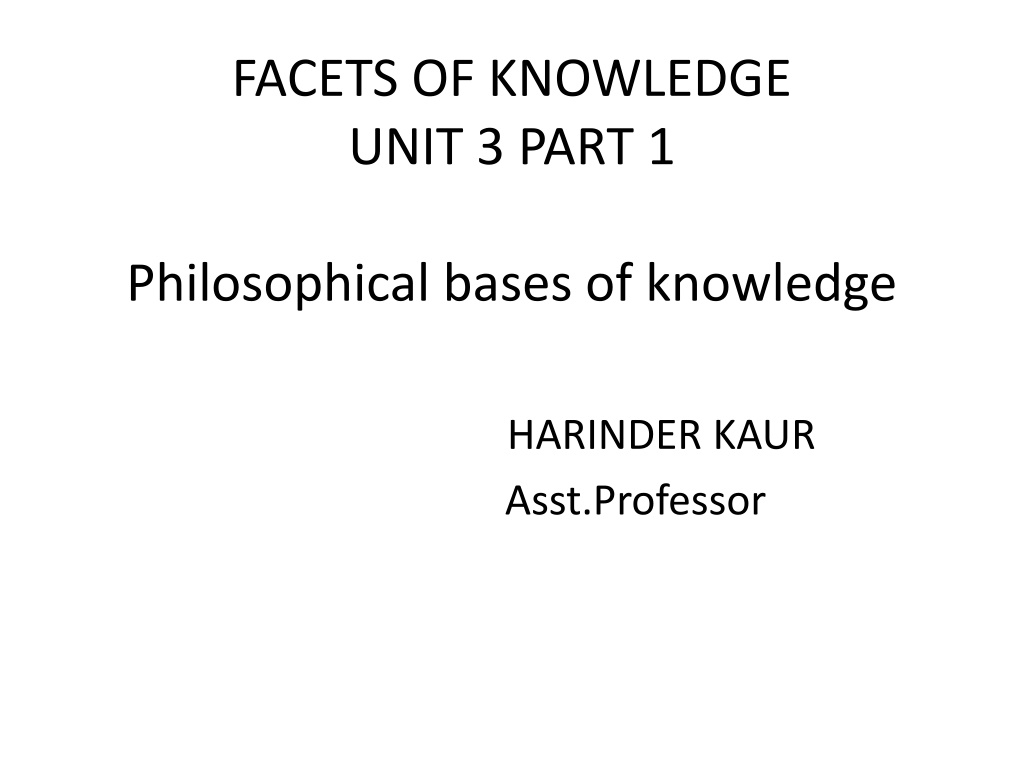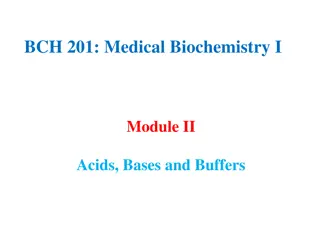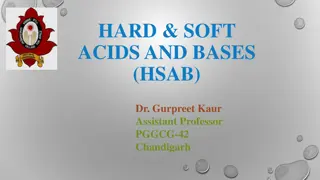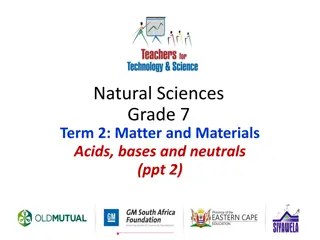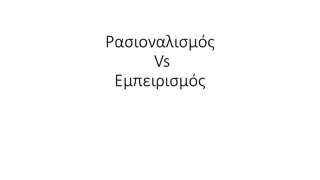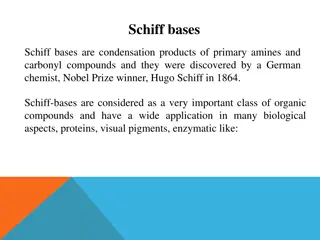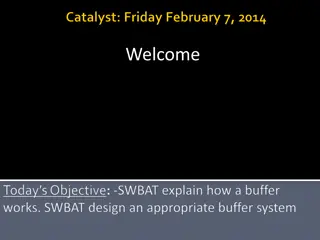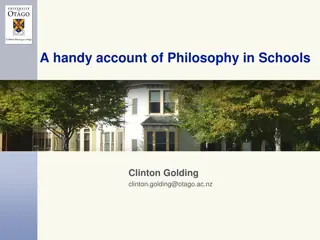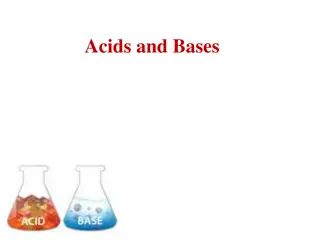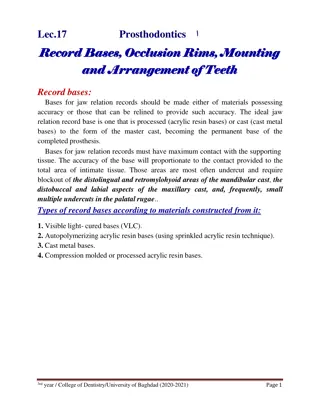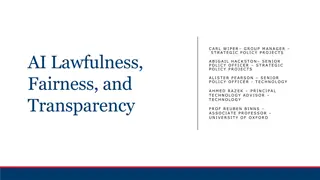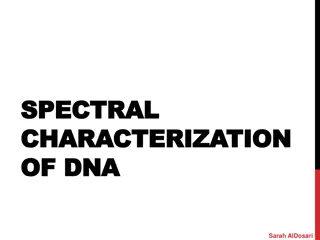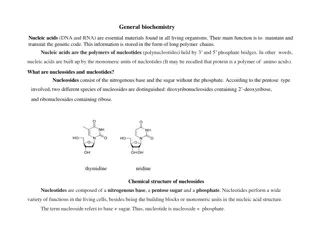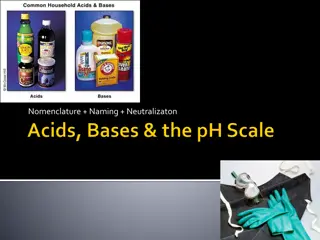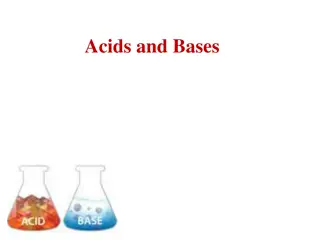Facets of Knowledge: Exploring Philosophical Bases and Types
Delve into the philosophical foundations and types of knowledge with insights on local and universal knowledge, theoretical and practical aspects, and school versus out-of-school knowledge. Understand how facets contribute to extended knowledge about attributes within different frames.
Download Presentation

Please find below an Image/Link to download the presentation.
The content on the website is provided AS IS for your information and personal use only. It may not be sold, licensed, or shared on other websites without obtaining consent from the author.If you encounter any issues during the download, it is possible that the publisher has removed the file from their server.
You are allowed to download the files provided on this website for personal or commercial use, subject to the condition that they are used lawfully. All files are the property of their respective owners.
The content on the website is provided AS IS for your information and personal use only. It may not be sold, licensed, or shared on other websites without obtaining consent from the author.
E N D
Presentation Transcript
FACETS OF KNOWLEDGE UNIT 3 PART 1 Philosophical bases of knowledge HARINDER KAUR Asst.Professor
Facets of knowledge A facet is a particular aspect or feature of something. Facets are used to establish the attribute, value and tell way to process the attribute. Facet is a means of providing extended knowledge about an attribute of a frame.
Types of facets of knowledge 1) local and universal knowledge Local :It is the knowledge that people in a given community have developed overtime and continue to develop it. Based on experience Adapted to the local culture and environment. Dynamic and changing.
Universal knowledge Knowledge is related to the universe, all nature or all existing things. It is experienced to everyone existing for everyone It is affecting, concerning or involving all. Includes all skills, branches of learning which are adapted to varied needs and requirement of universe.
3.Theory and practical Theoretical : Teaches us why concepts Deeper understanding of a concept. It prepares to set a direction for future education. Helps insetting strategies. Helps in understanding of whole, builds the context.
Practical knowledge Leads to a deeper understanding of a concept through the act of doing and personal experiences. Acquiring specific techniques. Learning through doing and experiencing. so theory is learnt through in the vacuum, the practical is learnt through reality of life.
5.School and out of school knowledge It is said to be organized knowledge guided by a formal curriculum. Learning of academic facts and concepts through a formal syllabus. It is lifelong and motivated by self interest, exploration, social interaction, curiosity. It includes learning activities. It is structured from primary to university with a varied of specialized program.
Out of school knowledge Those aspects of knowledge that operate before and after school It is intended to help, develop and nurture. Based on cultural values and norms. Life long process. It provides motivation for further activity and learning.
